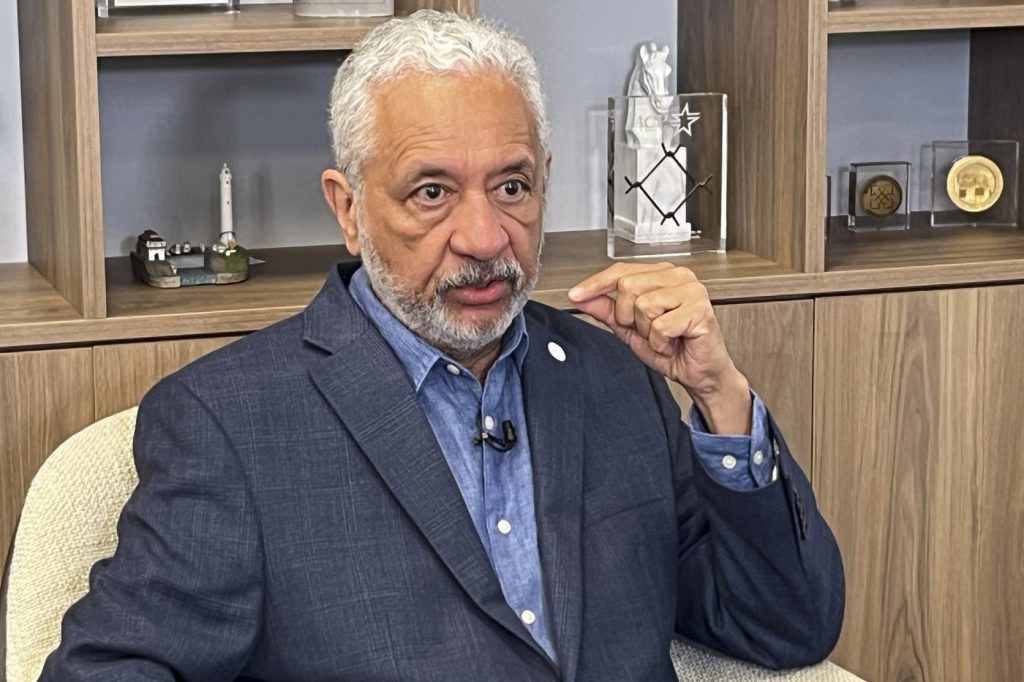PANAMA CITY (AP) – President Donald Trump's assertion on Monday that he desires to regain control of the Panama Canal has sparked nationalist sentiment and concern within Panama. The canal, which is a vital trade route, remains historically significant for Panama, a country that has experienced U.S. military interventions in the past. Trump voiced his grievances about American ships being overcharged and claimed that "above all, China is operating the Panama Canal."
In response to Trump's remarks, many Panamanians interpreted the comments as potential pressure tactics regarding immigration control through the Darien Gap. The memories of the 1989 U.S. invasion, which led to the overthrow of dictator Manuel Noriega, also loom large in the public consciousness. Consequently, Panama's President, José Raúl Mulino, vehemently rejected Trump's statements, emphasizing that the canal belongs to Panama and will remain under its jurisdiction.
Additionally, Panama's U.N. Mission communicated Mulino's firm stance to the U.N. Security Council, rejecting Trump's comments "in its entirety." The statement asserted, "There is no presence of any nation in the world that interferes with our administration." Luis Barrera, a 52-year-old cab driver, articulated a collective discomfort with Trump's rhetoric, likening it to an adult taking candy from a child, reflecting on the hard-fought struggle for Cuban sovereignty over the canal.
During a rally in Phoenix in December, Trump remarked that he might attempt to reclaim the canal, which he described as "foolishly" ceded to Panama. He reiterated concerns regarding overcharges faced by shippers and alleged that China had taken control of the strategically important waterway. Earlier this month, Trump even suggested he would consider military action to reclaim it.
The United States constructed the canal in the early 1900s to facilitate the movement of commercial and military vessels between its coasts. However, control of the canal was relinquished to Panama on December 31, 1999, under a treaty signed by President Jimmy Carter in 1977. For Panamanians, the canal is a source of national pride, marked by celebrations for the 25th anniversary of its handover and commemorations honoring the victims of U.S. military actions decades ago.
Historical tensions between Panamanians and the U.S. resurfaced in the 1964 protests against U.S. control, which were sparked by local students' demands to fly the Panamanian flag. This friction has evolved into present-day dissent, as evidenced by protests this year, where demonstrators burned an effigy of Trump.
Ricaurte Vásquez, the administrator of the Panama Canal, asserted that China does not control the canal and emphasized that operations are governed under a neutrality treaty that treats all nations equally. He clarified that Chinese companies operate ports at either end of the canal through a Hong Kong consortium that succeeded in a 1997 bidding process, while U.S. and Taiwanese companies manage other ports.
Omayra Avendaño, a real estate professional, expressed serious concerns about Trump's threat, emphasizing the country's lack of military resources in the face of potential U.S. aggression. She cited her memories of the last U.S. invasion when she was only 11 years old, recalling the destructive aftermath and hoping that Panama's government seeks international backing to counter Trump's intentions regarding the canal.
The historical context of U.S. intervention is critical to understanding current Panamanian sentiments. In December 1989, the U.S. military launched an invasion with the primary goals of capturing Noriega, protecting American citizens, and restoring democracy to Panama, which regained full control over the canal a decade later. Avendaño's desire for a proactive diplomatic stance underscores the precarious nature of Panama's geopolitical situation.










